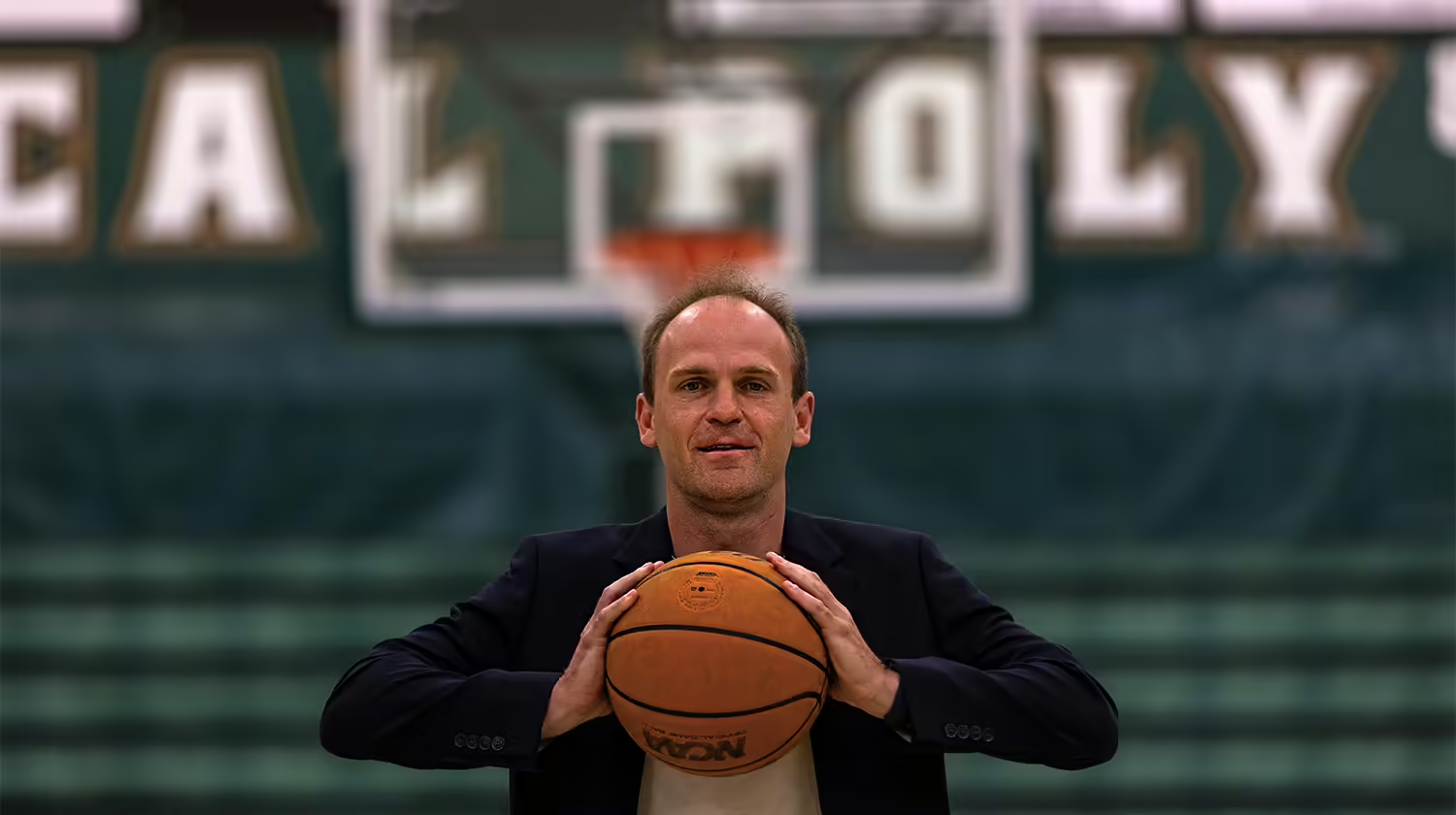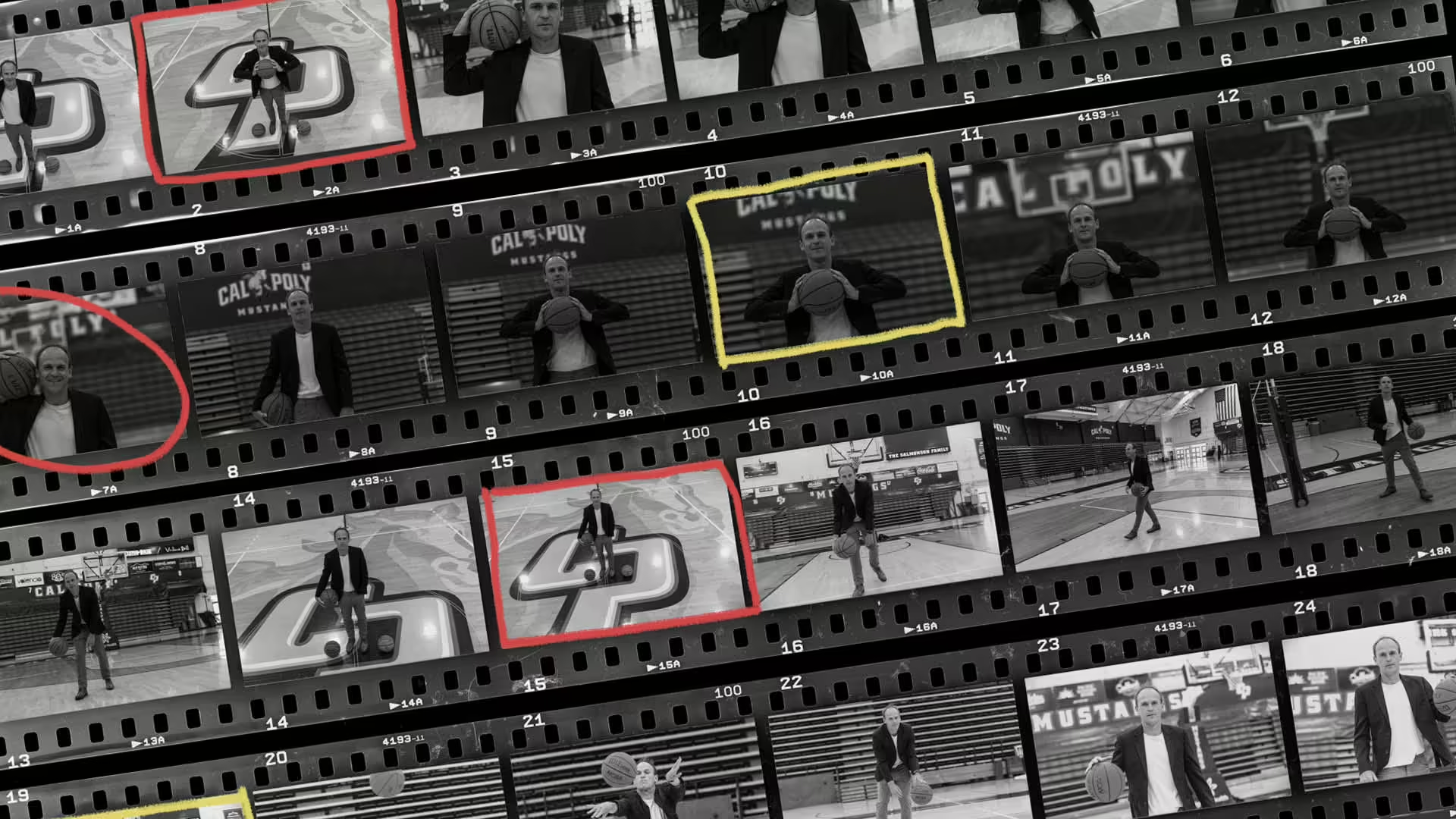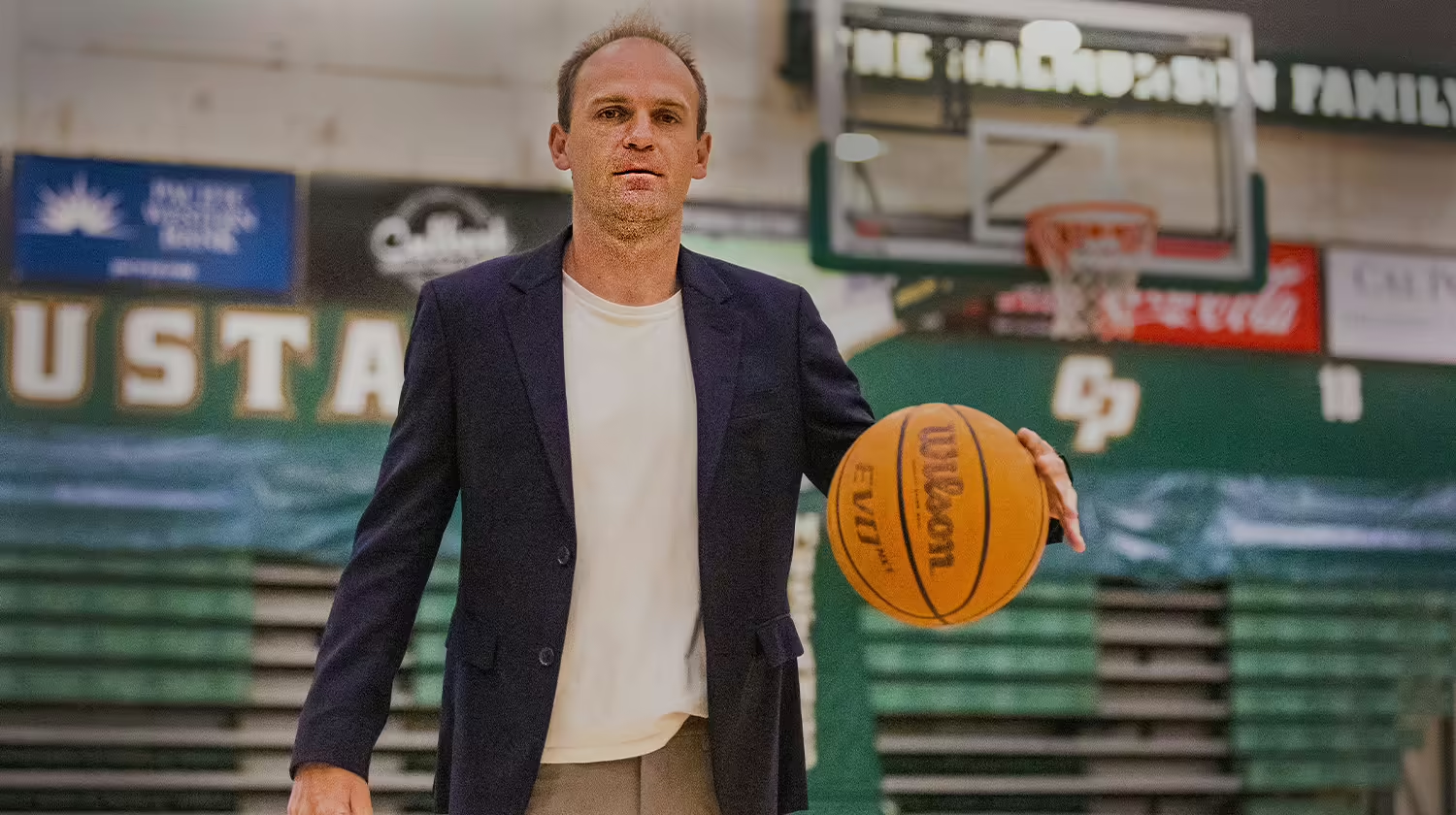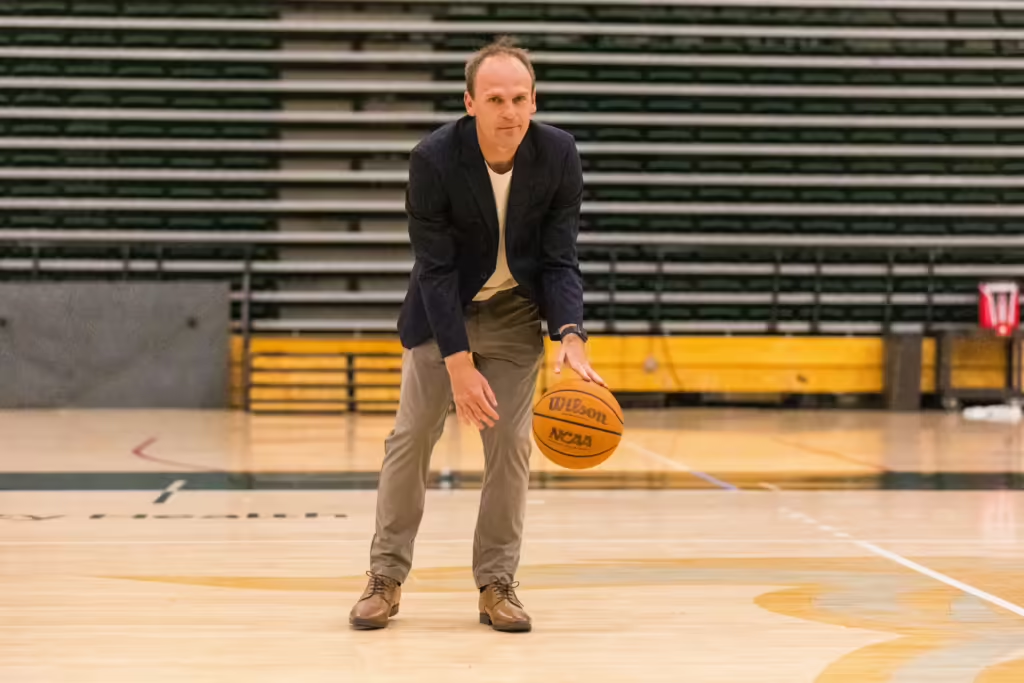Statistical Models Can Help NBA Teams Build Winners, Economics Professor Says

The best offensive players in the NBA aren't always the best option for building winners, says Joseph Kuehn, an associate professor of economics at the Orfalea College of Business. (Photo/Pat Pemberton)
Using detailed statistical models, Joseph Kuehn, an economics professor at the Orfalea College of Business, says many NBA teams have it all wrong when it comes to building winners.
Basketball executives spend big money on individual offensive production instead of compiling a team that complements one another, he wrote in his abstract for a research paper (“Accounting for Complementary Skill Sets When Evaluating NBA Players’ Values to a Specific Team”) that ESPN cited.
“This creates an asymmetry between player incentives and the team objective,” he wrote.
Within the study of economics is a growing field called sports economics. While economics and basketball require completely different skills, professional sports teams are increasingly using economics as a strategic edge to win games.
“Sports analytics is growing,” Kuehn said. “Almost every team and every major sport is using it to some degree. It is used in things like player evaluation but also health. That’s a big thing now: Can you try to prevent player injury?”

Joseph Kuehn has written several research papers that entail sports analytics, including multiple ones that analyze the NBA. (Graphic/Megan Stoneson, Photos/Pat Pemberton)
Kuehn decided to study the NBA about ten years ago because the data had been collected, but not much work had been done with it yet, unlike baseball, which had a lot of research.
The 2011 film Moneyball and the 2003 book “Moneyball: The Art of Winning an Unfair Game” showed the power of data and analytics in sports. Sabermetrics (sometimes known colloquially as moneyball), the empirical analysis of baseball using statistics that measure in-game activity, was applied to the 2002 limited-budget Oakland Athletics baseball team, which went on to win 20 consecutive games. This led to challenging the status quo and paved the way for broader acceptance.
“Baseball, they had all the data, they’ve already done that the Moneyball thing,” Kuehn said. “They kind of, I wouldn’t say, figured it out, but it had been at least a well-trodden area where basketball had collected the data, there was interest, but not a bunch of work had yet been done on it.”
“Sports analytics is growing. Almost every team and every major sport is using it to some degree.”
Joseph Kuehn
Kuehn has admired the work of Daryl Morey, who co-established the MIT Sloan Sports Analytics Conference. According to Kuehn, Morey, president of basketball operations for the Philadelphia 76ers, helps build and implement the research into the teams.
“Morey is still trying to build and bring these ideas and develop them,” he said. “And so I think what he’s done is very impressive. Just in taking these things that people are writing papers about and thinking about and actually implementing them on teams.”

Joseph Kuehn has contributed to a growing body of work using stats to maximize the performance of sports teams. (Photo/Pat Pemberton)
Kuehn’s research has been cited on well-known sports websites like ESPN and The Athletic. ESPN highlighted the eight finalists for the MIT Sloan Sports Analytics Conference’s research paper of the year, and Kuehn’s paper called “Accounting for Complementary Skill Sets When Evaluating NBA Players’ Values to a Specific Team” was a final eight. He was mentioned in an article on The Atheltic when they were discussing the highlights of the MIT Sloan Sports Analytics Conference. Kuehn spoke at the conference and was recognized in the article for his research on Chicago Bulls’ players.
In the Game Himself
Growing up, soccer was his number one sport to play, but he watched basketball the most, which he thinks may have piqued his interest in research.
“When I was 10, I probably wanted to play professional sports rather than do any kind of research,” he said.
He went on to study economics as an undergraduate at UCLA. While there, a guest lecturer told him that he could pursue sports as an economist.
“I think it was one of the principles classes — it might have been principles of macroeconomics,” he said. “That was the first time I even knew you could do economic research in sports-related topics, so then I was kind of interested in that.”
Diverse Research
Kuehn’s doctorial dissertation was the banking industry.
Kuehn has a diverse background, including research on more esoteric topics, ranging from H-1B Visas to USFS Timber Auctions.
Banking and the NBA might seem like completely different areas, but he found similarities. In his banking paper, he examined how different markets interacted with one another, and for the NBA, he examined how players interact with teams.

Joseph Kuehn’s sports research has been cited on ESPN and in The Athletic. (Photo/Pat Pemberton)
Economics also helps cities determine if taxpayers should fund new stadiums. “There’s been a lot of economic research that teams actually don’t provide too much of an economic value to their local area,” said Kuehn.
“Even very recently, maybe eight, five to 10 years ago, teams were getting public financing from the cities to build their stadiums,” he said. “ There’s been a lot of economic research that teams actually don’t provide too much of an economic value to their local communities so that’s kind of led to pushback. We saw this in Oakland, with the A’s organization, which really wanted the city to pony up some money for a stadium, and the city was kind of like, well, there’s a lot of economic analysis here that says that adding a stadium is not going to revitalize the area in the way that you’re kind of presenting it. That’s put more back onto the owners that if they want these new stadiums, they’re going to have to pay for it rather than use taxpayer money.”
Current
Kuehn primarily focuses on the idea of measuring complementarities between players.
“That’s kind of the initial metric that I built in grad school, which is based around this idea that players are like a collection of skills,” he said. “And if you can measure the complementarities between different skills, then you can measure the complementarities between different players.”
He is currently focused on two studies regarding professional basketball.
“Are NBA teams able to evaluate talent when you have a player like Steph Curry, who played at Davidson College, where they had players that complimented his skill set because they weren’t ball-dominant?” he posed. “Can you evaluate that compared to somebody who’s played at Duke University, where there are more ball-dominant players? You’re not gonna be able to assess their skills individually. And so that’s one thing.”
By supporting the Economics program at the Orfalea College of Business, you can help our faculty better prepare our students for a competetive industry.
Kuehn is also investigating why the NBA’s Western Conferences have been consistently better over the last 20-25 years than the Eastern Conference. Specifically, he wants to examine whether it is a “snowball effect.”
“They don’t have to pay as much money to acquire talent to still get to the same level in the playoffs,” he said. “You kind of get these initial differences, which really start to snowball and exacerbate until you get this very strong difference between the conferences that we see now.”
On Campus
Kuehn recently explained some of his work to the Cal Poly Economics Society club he advises.
“He is well-liked by all his students, and his sports research has a broader appeal than the research of most other economics professors,” said Hayden King, president of the club and an economics major, who recently invited Kuehn to speak to the club.
“I love to see a professor devote a lot of time to an interest that they developed outside of academia,” said King.
